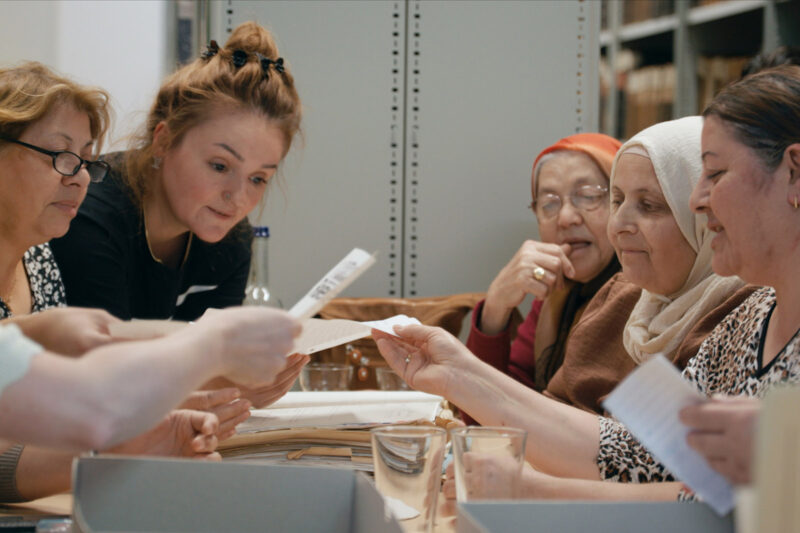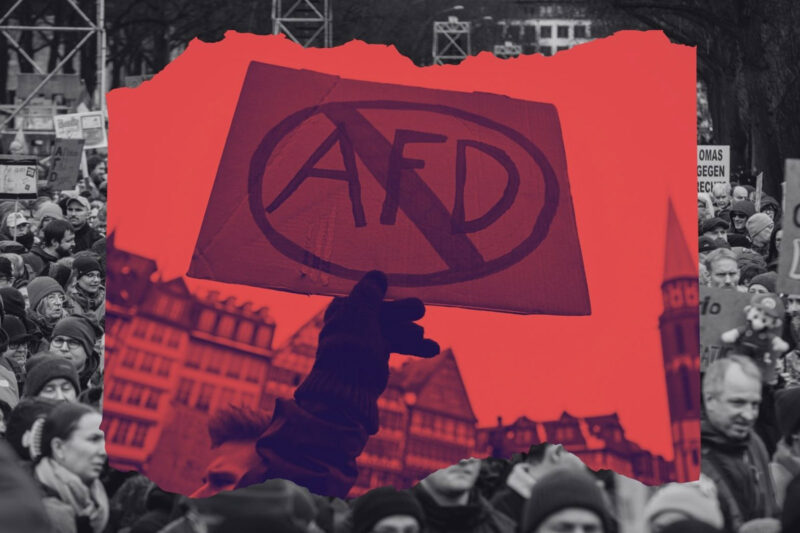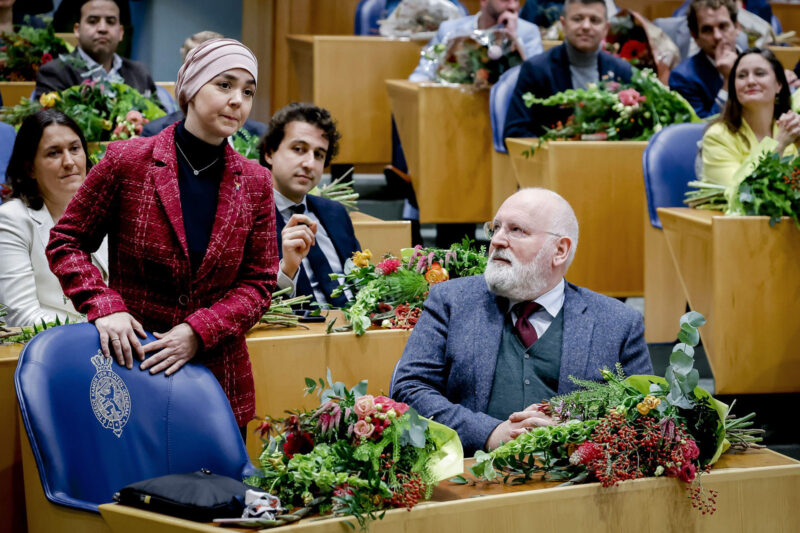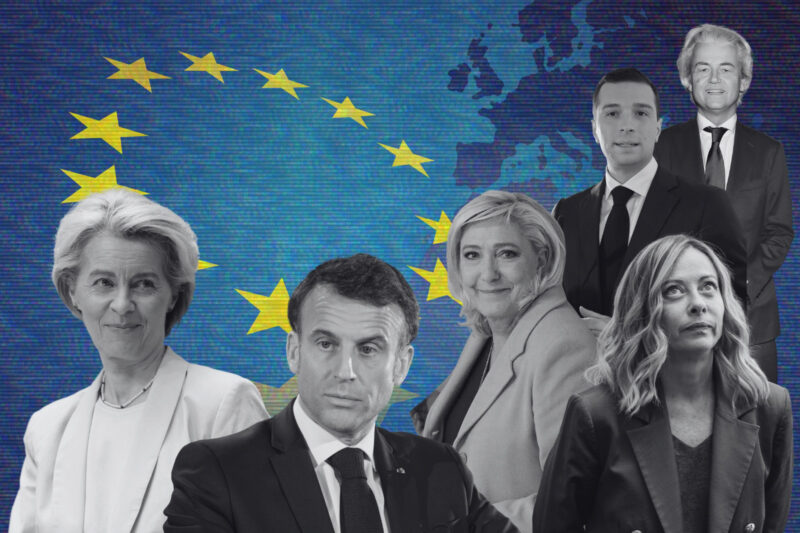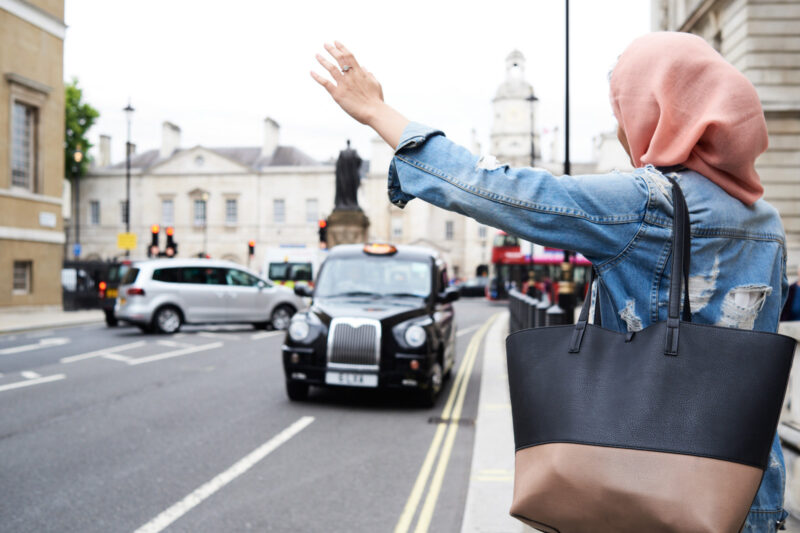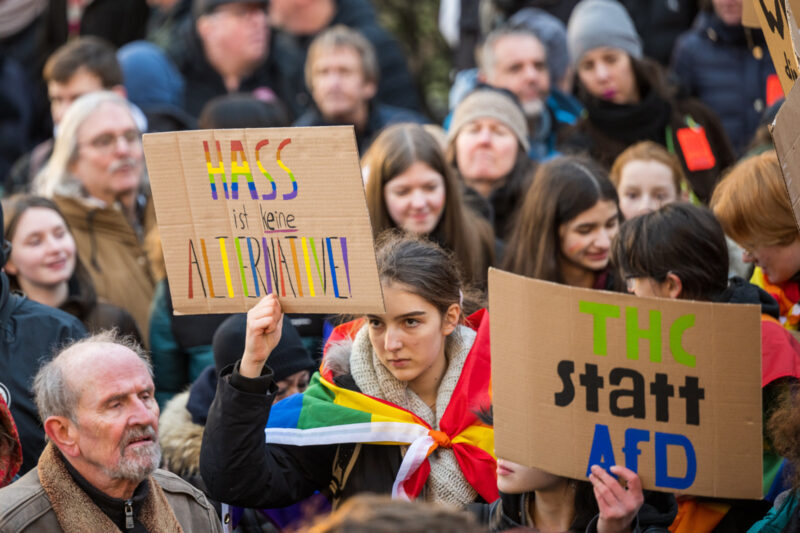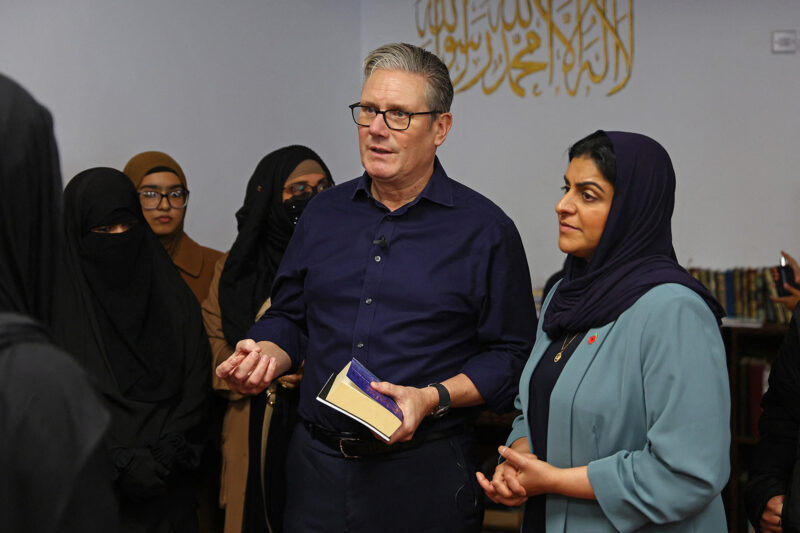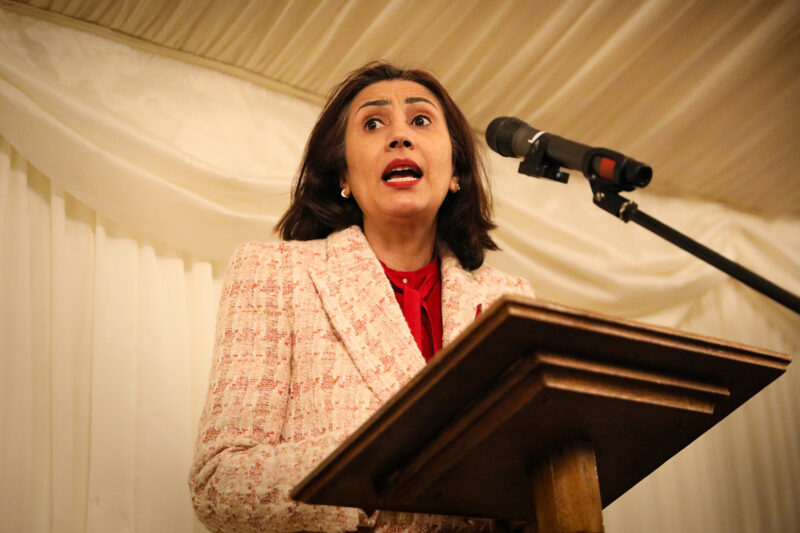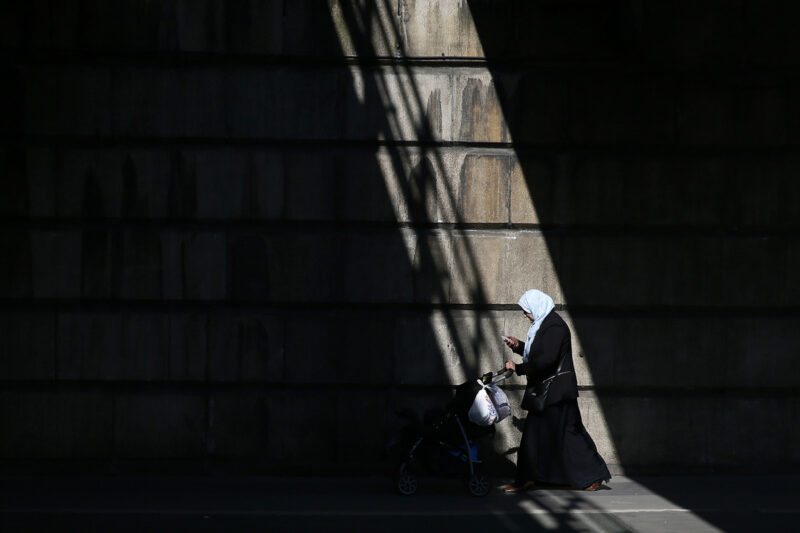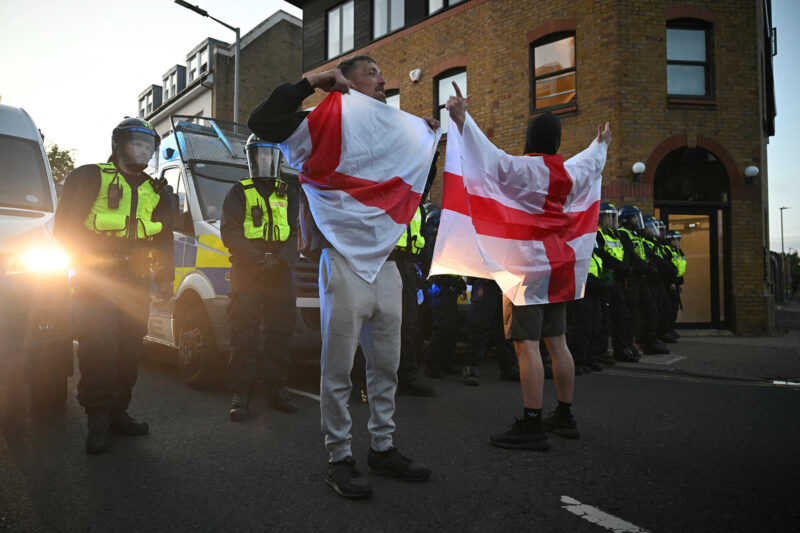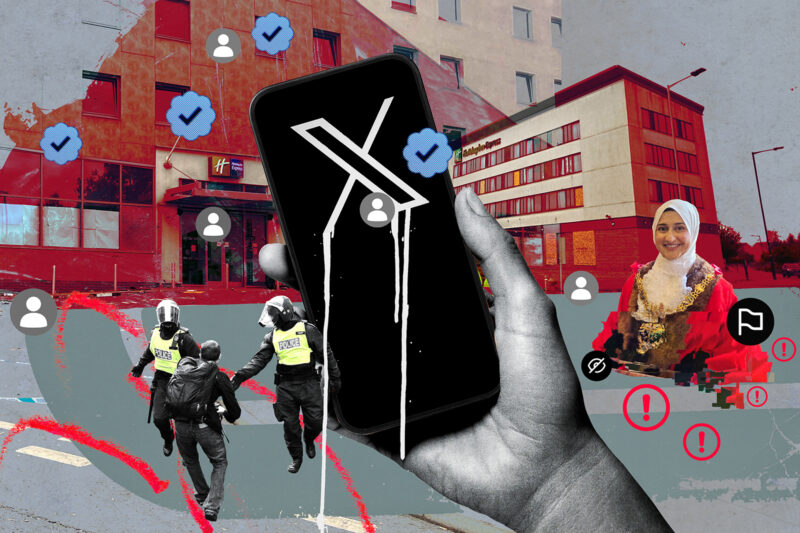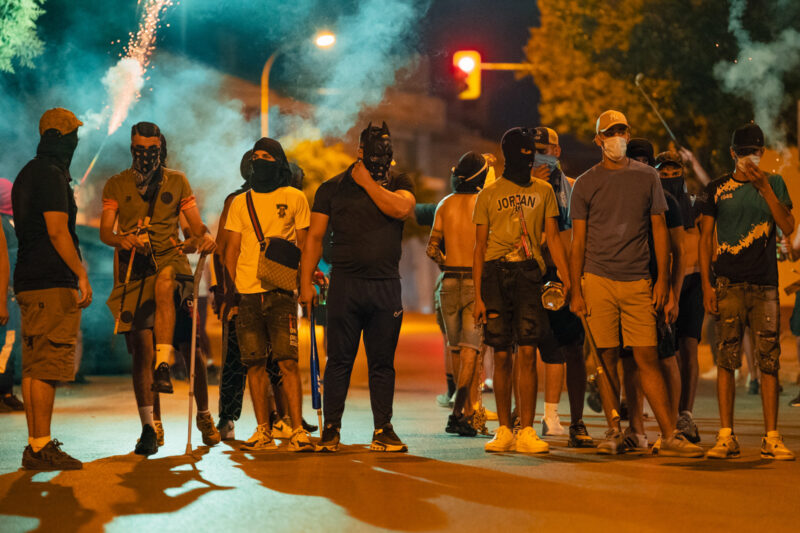‘There was a sense that nothing and no one was going to protect us besides us’
Four years after the Hanau terrorist attacks, the victims’ families reflect on Germany’s Islamophobia problem
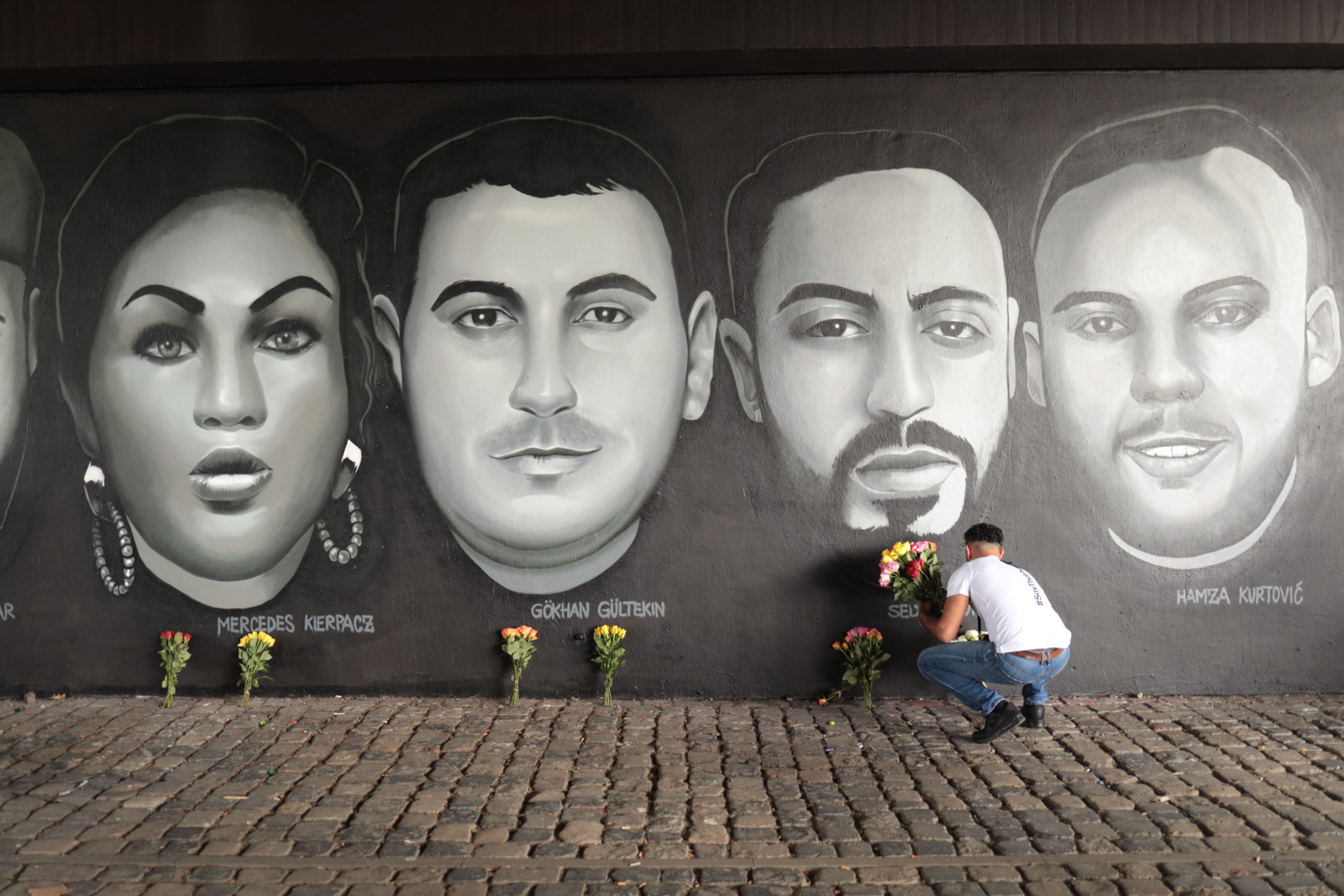
In streets, bars and cafes around Germany, you might notice the stencilled portraits of nine faces. Eight men and one woman, their features solidified in black outlines. Alongside them is the hashtag: #saytheirnames.
Their names are Gökhan Gültekin, Ferhat Unvar, Mercedes Kierpacz, Said Nesar Hashemi, Sedat Gürbüz, Fatih Saraçoğlu, Hamza Kurtović, Kaloyan Velkov and Vili Viorel Păun, and they were killed when a far-right extremist opened fire on two shisha bars in the city of Hanau on 19 February 2020. All were of Middle Eastern and Balkan heritage. The gunman — who most media have chosen not to name out of respect for his victims — had deliberately targeted venues that were popular with young Muslims. He later turned the gun on himself.
For most Germans, the mass shooting was among the worst incidents of racist violence in their lifetime. It also exposed deep flaws in the government’s response to far-right extremism and high levels of racism — particularly Islamophobia — embedded in German society. The perpetrator was a known extremist with a hate-filled YouTube channel calling for the “complete annihilation” of people from the Middle East, Asia and Africa. He had even sent parts of his manifesto to German authorities but despite this profile was not being monitored as a security threat. He was able to legally buy and keep a gun. His attack began at 10pm, but police did not enter his house until 05:15 the next morning and failed to arrest him before he killed himself.
Four years on, Germany’s far-right AfD party has risen in the polls and mainstream politics is sliding further into anti-migrant discourse, particularly since Germany’s recent repression of pro-Palestine voices. Relatives of the victims, survivors and activists are still demanding answers that have not been given: how was the Hanau shooting allowed to happen, and what is being done to ensure it won’t happen again?
“Four years have gone by so quickly, I can’t believe it,” said Niculescu Păun, father of 22-year-old Villi. The family had moved to Hanau from Romania just three years before the attack. “And still no one has admitted any responsibility [for the failings].”
The victims’ families are determined to keep Hanau in the national consciousness. Just two weeks after the shooting, frustrated with a lack of police communication — “It was like everything was a secret,” said Păun — around 15 relatives met with eight left-wing activists and formed the 19 February Initiative. The group of strangers were soon spending days and nights together. They rented an empty shop in Hanau’s main square and transformed it into their headquarters. Here they pored over documents, hunted down new witnesses and analysed the authorities’ response to the atrocity.
When Păun received his son’s phone back from the police, he discovered Vili had tried to call emergency services three times after witnessing the first shooting, in which three people were killed. Unable to get through, he had decided to follow the gunman himself to try to stop him, and was shot. The perpetrator then killed five more people at a second bar. Through examining emergency call logs, the group discovered that the police hotline had been experiencing technical difficulties that left them unable to take emergency calls for a whole hour during the attacks.
Later, when some local police were suspended over their involvement in a far-right group chat, the families discovered that 13 of these officers had attended the crime scene. The families then commissioned the independent research platform Forensic Architecture to investigate and it found multiple further police failings, including that police did not properly secure the perpetrator’s house and didn’t share his address with the overhead helicopter.
After a year of relentless campaigning, the 19 February Initiative forced the state government to open a public inquiry a year later. In May 2023 this concluded that although failings had taken place, the attack could not have been prevented.This did not satisfy Păun. For a start, he and other members of the initiative would like to see tougher gun laws introduced. Currently, anyone in Germany can apply for a gun licence. “The perpetrator had more than 500 bullets stored in his car,” he said, exasperated. “We live in peace time! We are in the EU! What does anyone need these [weapons] for?”
The shooting delivered a profound shock to Hanau — a small, relatively peaceful city with a low violent crime rate — but it also instilled fear in migrant communities across Germany, witness to the authorities’ inability to prevent far-right violence.
“There was a sense that this has happened before and it will happen again,” says Munir, who uses a pseudonym when speaking to the media. He is a member of Migrantifa Berlin, a left-wing anti-racist group formed in response to the massacre. “And there is nothing and no one that is going to protect us besides us.”
Migrantifa Berlin aims to create an alternative to the mainly white-dominated anti-fascist organisations active in Germany, engaging migrants and people of colour in politics and racial justice work. It was launched in 2020 amid a wave of BLM protests across Europe in 2020 and soon saw other Migrantifa groups popping up across the country. The Berlin branch runs a permanent space — the Rote Lily — in Neukölln, a Berlin neighbourhood known for its large Turkish and Arab populations.
“You will see with the current anti-AFD demos, they are heavily dominated by white people,” says Munir. “There are almost no migrant groups involved in these protests, even though they are the ones directly targeted by [the AfD].” Some German Muslims have even said they feel unsafe at these protests after Germany’s recent crackdown on pro-Palestine voices.
Migrantifa Berlin has a close relationship with the 19 February Initiative and organises a vigil and demonstration in Berlin on the anniversary each year. It claims that last year’s event was its largest ever, with 20,000 attendees, but this year may be bigger still. Recent anti-AfD protests have drawn hundreds of thousands around the country in total.
In the wake of the Hanau attacks, the German government commissioned its first-ever expert committee on “anti-Muslim hate” to deliver a report on the scale and scope of prejudice against Muslims in the country. It took three years to compile and was released at the end of 2023.
“We found that every second person has anti-Muslim attitudes,” said the committee’s chair Karima Benbrahim, also founder of the racist violence monitoring network IDA-NRW. The committee was clear that Islamophobia is not just confined to the far-right but can be found “in every corner of society” — across political parties and in all types of media.
The report flagged that not only are police untrained in recognising Islamophobic hate crimes, they do not even have a specific category for recording them. They only have the category of “Fremdenfeindlichkeit” (xenophobia), making it hard to gather data on harassment and violence experienced by German Muslims.
For Karima, the fact the report was commissioned at all marks progress. “But the question we now have is what is going to happen with this report? And this is something we still don’t have an answer to.”
With a lack of answers and accountability from authorities, anti-racist campaigners are turning to the arts to ensure that the nine victims of the Hanau shooting are not forgotten and that Germany is reminded of the threat posed by far-right terror. Two of the victims’ relatives are due to publish memoirs this year: Born, Raised and Killed in Germany by Gökhan Gültekin’s brother Çetin, and The Day I Should Have Died by Said Nesar Hashemi’s brother Said Etris, who was injured in the attack. Serpil Temiz Unva, Ferhat’s mother, has set up a project training state school pupils to deliver peer-to-peer anti-racism workshops.
Every year on 19 February, the art collective Kollektiv Ohne Namen (Collective Without a Name) paints a new mural of the nine victims somewhere in or around Hanau. Their stencilled portraits stand several metres high, the #saytheirnames slogan unmissable.
“In 20 years, people will see that slogan and will be reminded of what hate can do,” said Păun. “It was our choice to come to Germany. We did everything to respect German culture. We worked, we learnt German. But now we live in a nightmare.”
 Newsletter
Newsletter


